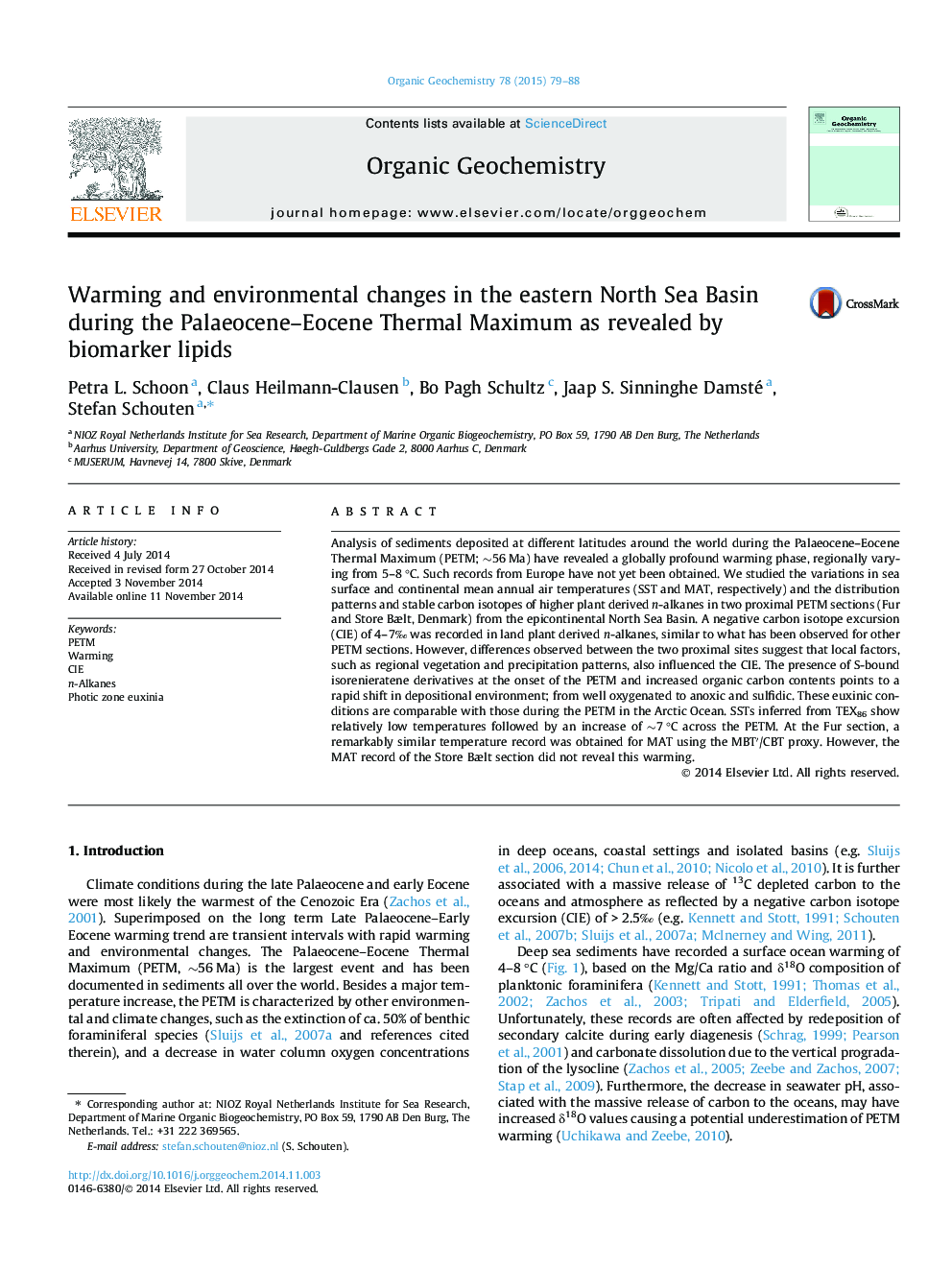| Article ID | Journal | Published Year | Pages | File Type |
|---|---|---|---|---|
| 5162666 | Organic Geochemistry | 2015 | 10 Pages |
Abstract
Analysis of sediments deposited at different latitudes around the world during the Palaeocene-Eocene Thermal Maximum (PETM; â¼56 Ma) have revealed a globally profound warming phase, regionally varying from 5-8 °C. Such records from Europe have not yet been obtained. We studied the variations in sea surface and continental mean annual air temperatures (SST and MAT, respectively) and the distribution patterns and stable carbon isotopes of higher plant derived n-alkanes in two proximal PETM sections (Fur and Store Bælt, Denmark) from the epicontinental North Sea Basin. A negative carbon isotope excursion (CIE) of 4-7â° was recorded in land plant derived n-alkanes, similar to what has been observed for other PETM sections. However, differences observed between the two proximal sites suggest that local factors, such as regional vegetation and precipitation patterns, also influenced the CIE. The presence of S-bound isorenieratene derivatives at the onset of the PETM and increased organic carbon contents points to a rapid shift in depositional environment; from well oxygenated to anoxic and sulfidic. These euxinic conditions are comparable with those during the PETM in the Arctic Ocean. SSTs inferred from TEX86 show relatively low temperatures followed by an increase of â¼7 °C across the PETM. At the Fur section, a remarkably similar temperature record was obtained for MAT using the MBTâ²/CBT proxy. However, the MAT record of the Store Bælt section did not reveal this warming.
Related Topics
Physical Sciences and Engineering
Chemistry
Organic Chemistry
Authors
Petra L. Schoon, Claus Heilmann-Clausen, Bo Pagh Schultz, Jaap S. Sinninghe Damsté, Stefan Schouten,
